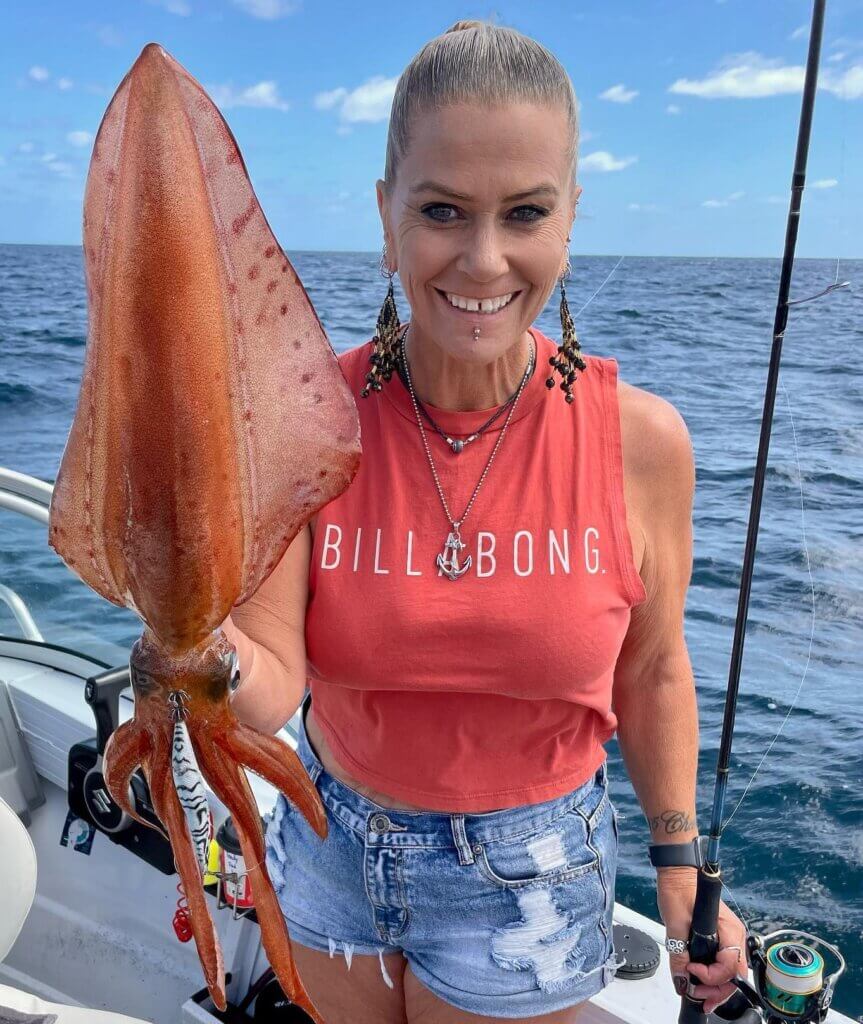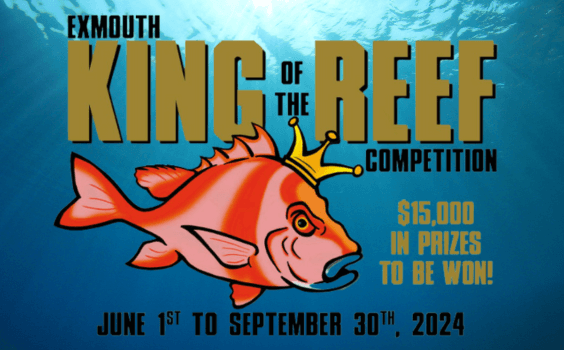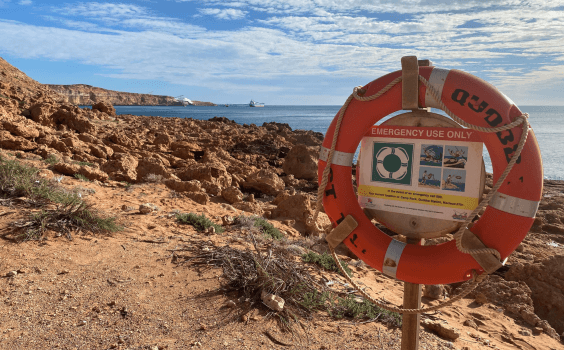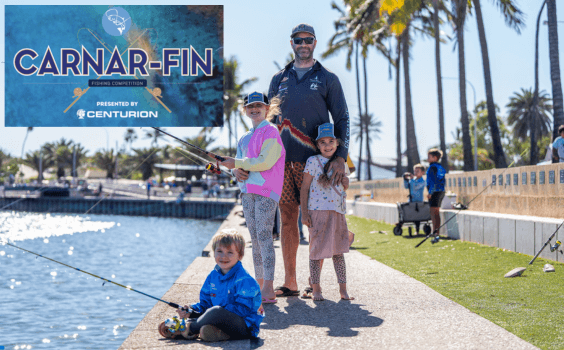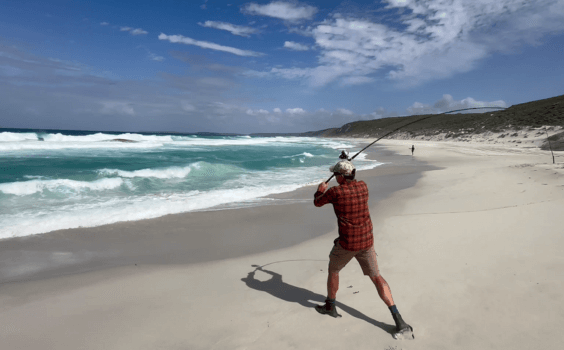Southern calamari are very popular and for good reason, writes Western Angler editor Scott Coghlan in this week’s Scott’s Species.
Species: Southern calamari, Sepioteuthis australis
Eating: 5 stars
ID: Colour can vary from brown to translucent. Diamond-shaped wings along length of tube.
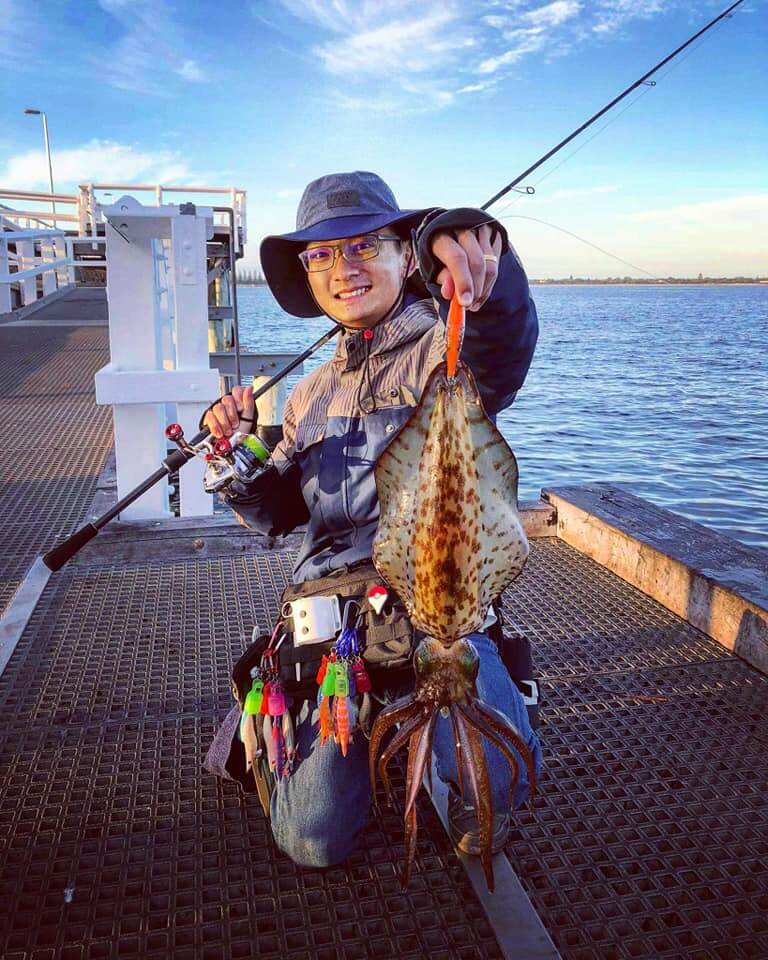
Squid fishing has grown massively in the past decade and the accessibility of southern calamari has been a big part of the egi (as squidding is called in Japan) revolution in WA, as they can be caught from shore and boat, and taste incredible!
Our southern squid might only live for around 18 months, but they are prolific spawners and there are no stock concerns — indeed a study around a decade ago predicted the global biomass of squid would overtake that of humans before too long.
The biggest southern calamari will have hoods around 40cm long, but most caught will be a fair bit smaller than that.
These squid are found as far north at Exmouth, but are most prolific in the southern half of WA.
Squid are opportunistic predators who will eat crustaceans and fish and can easily be targeted by line anglers in likely locations.
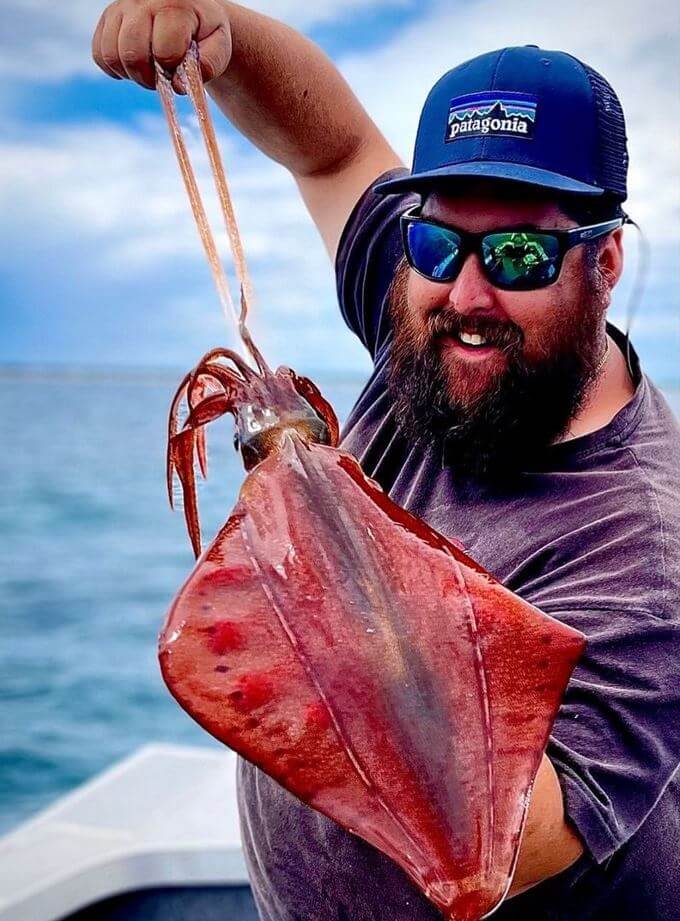
These are usually found around broken bottom and weed beds (particularly ribbon weed) in less than 10m of water, although they will also move into the shallows along sandy beaches at times.
Some anglers like to target them in 10m to 20m and they will show up in much deeper water as a bycatch.
Squid are found in inshore waters and some of the more reliable locations include Geographe Bay, especially in the portion of the bay off Busselton, Cockburn Sound and King George Sound.
Drifting around the sort of locations mentioned earlier is a good way to find squid, which will often be encountered in small groups.
It’s not unusual to have two or three lines go off at once, and then have other squid follow in their hooked mates.
The gear used doesn’t have to be expensive and I’ve caught many squid on handlines, as well as rods.
Simply drifting with the jigs out is usually effective when fishing from a boat, but sometimes casting and using an exaggerated lift and drop, a Japanese technique, can be deadly.
The key to jigs is to get them close to the bottom, where the squid will usually be holding.
While boat fishing is most productive, squid fishing from shore can be great too.
Busselton Jetty is a renowned squid spot and both the Fremantle moles can produce, along with other metro rockwalls.
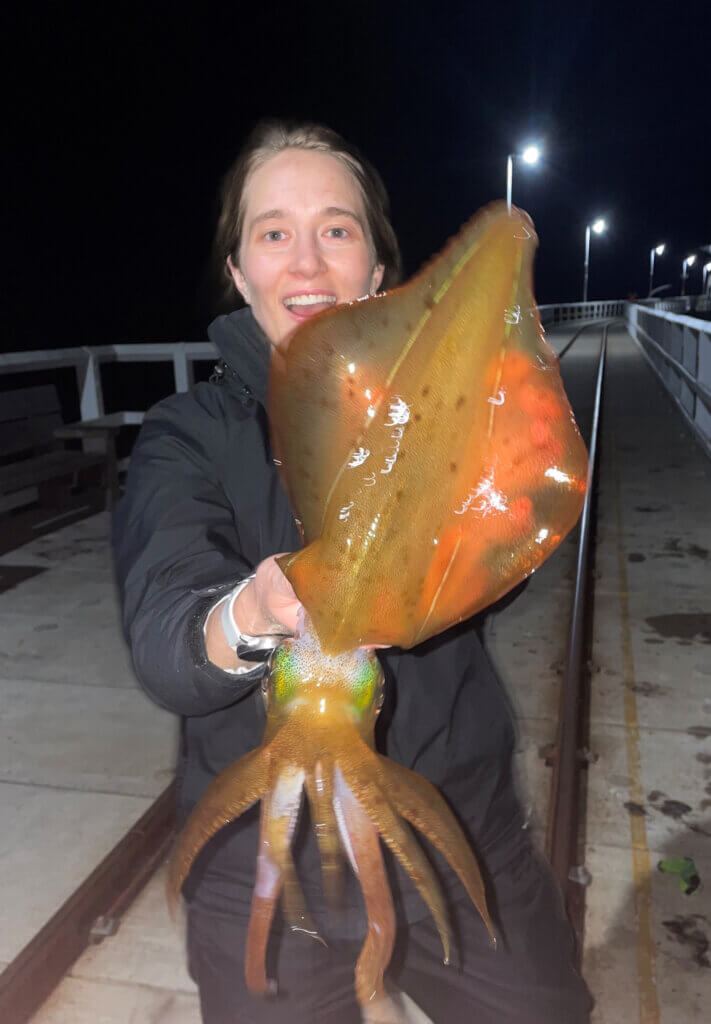
I have caught heaps from shore at Rottnest Island and in Princess Royal Harbour in Albany. They are also caught from the rocks around King George Sound in Albany.
While squid can be caught all day, when shore fishing I have done best late afternoon as the light begins to fade and they start hunting more actively in the shallows.
If you can find a spot with a bright light, such as a jetty, then you’re in business after dark. Squid love to hunt under these sorts of artificial lights.
Back when I was a kid cutting my teeth on squid fishing, it was baits such as whole herring threaded on a pencil jig and suspended under a blob.
There were small oval-shaped squid jigs as well. These methods still work, but the influence of Japanese methods on WA fishing since the mid-80s has been huge.
The arrival of Yo-Zuri prawn-style jigs revolutionised local squidding and they are now easily the most popular way of catching them.
There is a mind-boggling array of different jigs now available, with many popular brands featuring a bewildering range of colour and size combinations. Some have rattles built into them.
My favourite jig in recent years has been the Shimano Sephia Egixile in white with a rattle.
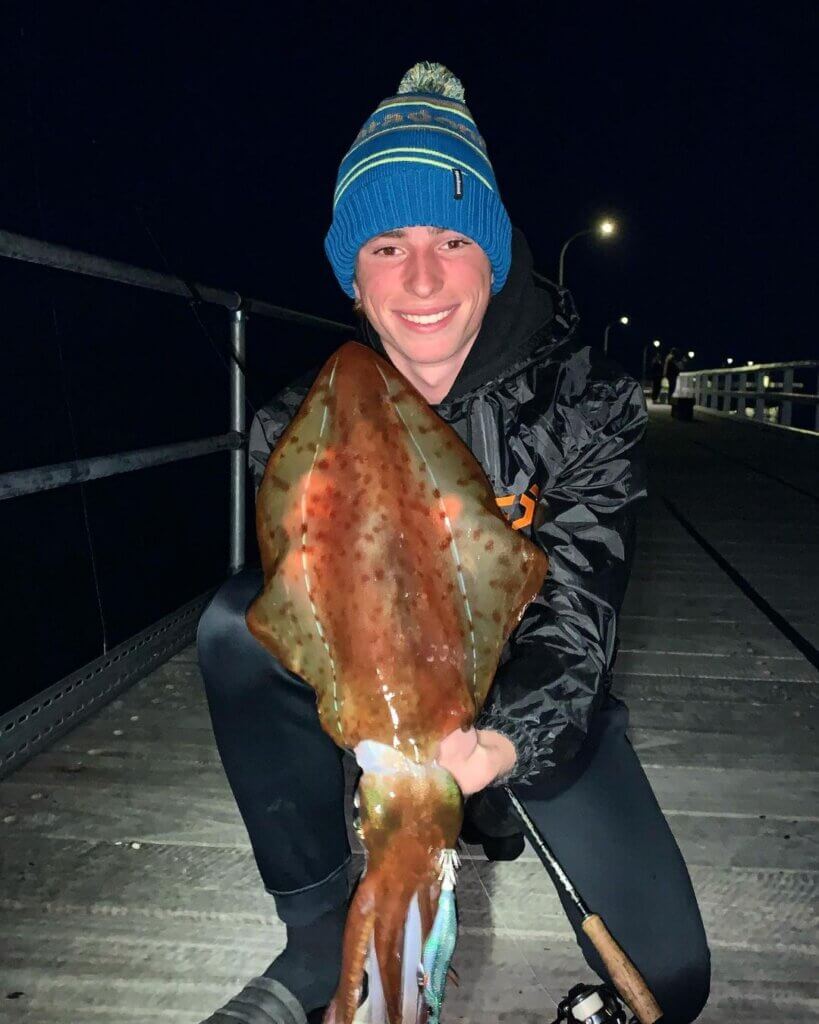
But the success of various colours can vary from day to day and it pays to have a range to choose from, and rotate through them until you hit the spot for their mood on that day.
A clip will allow you to change lures quickly and easily and won’t deter squid.
There are jigs to suit all budgets and all will catch squid, although the most popular brands are usually more reliable over the long run.
Squid sinkers are a useful piece of tackle to have, as they enable you to get lures down even on windy days.
These days there is also a wide range of specialised tackle such as egi rods, with soft tips to avoid pulling the jig out when the squid propels itself away.
Indeed, it is a very wise idea to go a bit gentle on hooked squid otherwise you will lose them quite regularly.
A simple spin outfit, with 4kg-5kg line and slightly heavier fluorocarbon leader, is all that is needed for squid, with a longer rod around 2.7m helping with casting, especially for shore anglers.
There are even squid gaffs on the market.
When it comes to cleaning squid, if you are fishing from a boat the best method is to remove the heads and innards, and cut open the end of the tubes, and tow them behind the boat for a few minutes in a scaler bag.
This avoids much of the mess that can go with cleaning squid.
Wearing some horrible, smelly, black squid ink is just part of the squid fishing experience, so don’t wear your best clothes if you’re planning on chasing southern calamari!
It’s funny when it happens to someone else though! But even if you do cop a jet of ink, don’t get too upset, as you can nevertheless look forward to one of the best seafood meals on the planet.
